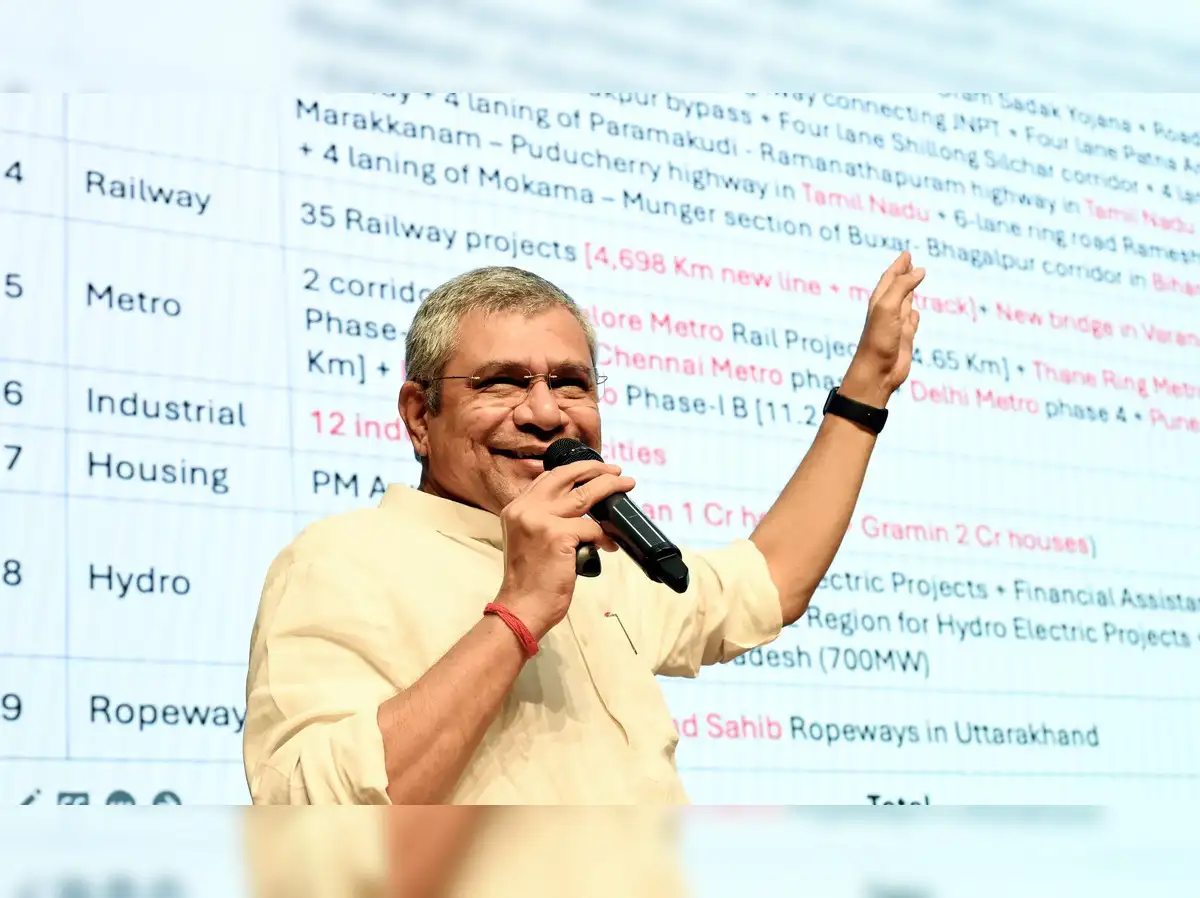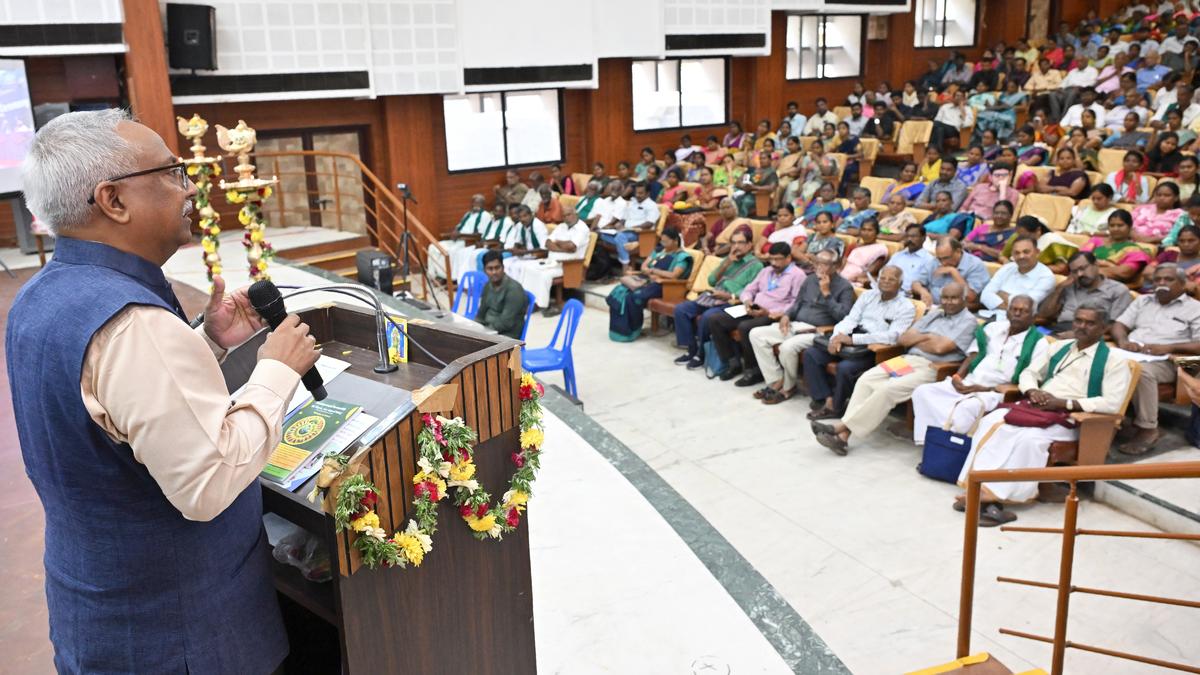Zoom’s Eric Yuan Predicts A Three-Day Week – Can Artificial Intelligence Truly Free Workers From The Grind And Create Space For Better Living?
By Eshita Bhargava
Copyright timesnownews

When I first read Zoom CEO Eric Yuan’s comments about a three-day working week, I found myself quietly smiling. It felt like someone had finally articulated what many of us have been thinking: if technology – particularly artificial intelligence – is meant to make our lives easier, why are we still bound to the five-day grind? As Yuan himself said recently, “If AI can make all of our lives better, why do we need to work for five days a week? Every company will support three days, four days a week. I think this ultimately frees up everyone’s time.” That line stuck with me. Because for decades, we have been promised that machines will do the boring, repetitive work so that humans can focus on the creative and meaningful. Yet, paradoxically, the more technology we’ve had, the busier we’ve become. Yuan’s prediction of a three-day work week feels like a chance to reset. Why This Could Be a Boon From my perspective, a shorter week is not about laziness. It is about focus. When we know our time is limited, we tend to work harder, smarter, and with clearer priorities. Just as a looming deadline can sharpen our concentration, so can a compressed work schedule. In fact, some UK companies already trialled a four-day week last year, and productivity didn’t just stay the same – in many cases it went up. I have personally experienced this. During the pandemic, when Zoom became my lifeline for meetings, I also discovered how much time I wasted in unnecessary commuting and office rituals. On days when I worked from home, I could power through my tasks in five hours instead of eight. Imagine if AI could automate even more of the repetitive parts – scheduling, reporting, or basic coding – freeing me to focus on strategy, innovation, or simply catching my breath. Voices from the Workforce But I also know my enthusiasm is not universally shared. Over coffee last week, I spoke to my friend Priya, an HR manager in Bengaluru. “Three days would be great,” she told me, “but only if companies stop expecting us to cram five days of work into three. Otherwise, burnout will just happen faster.” Her concern is valid. Another colleague, Daniel, a software developer in London, put it this way: “AI can write code, sure, but I still have to debug it. And now I’m also expected to manage digital agents. It feels like the workload isn’t going away; it’s just shifting.” These voices remind me that shorter weeks must be implemented wisely. Otherwise, they become gimmicks. The key is to genuinely let go of unnecessary tasks, not to squeeze them into a smaller box. Family Life and Human Connection Where I see the biggest potential win is in family life. A three-day work week would give me something I’ve craved for years: unhurried time with my loved ones. No rushing from meetings to the school gate. No Sunday evenings consumed by dread of Monday. Instead, a rhythm where work energises rather than depletes. I think of my father, who worked six days a week when I was a child. We’d get a single day together, and even then he’d be exhausted. If AI can allow my generation to break that cycle, then the technology will have fulfilled a deeply human promise. Narayana Murthy’s 70-Hour Week Debate This is also why I find Narayana Murthy’s recent call for young Indians to work 70 hours a week so jarring. Murthy, co-founder of Infosys, argued that India needs longer working hours to boost productivity. But to me – and to many young professionals I’ve spoken to – that feels like marching in the wrong direction. If anything, the future should be about working fewer hours with greater impact. I respect Murthy’s achievements, but expecting 70-hour weeks in an era when AI is automating routine work seems unreasonable, even counterproductive. Long hours do not automatically translate to better outcomes. They often lead to stress, mistakes, and high turnover. A friend of mine, Arjun, a data analyst, summed it up bluntly: “My parents’ generation already sacrificed family life for their careers. Why should we repeat that? With AI, we have a chance to do it differently.” The Risk of Job Losses Of course, Yuan himself acknowledged that AI will not be an unqualified blessing. “Whenever there’s a technology paradigm shift, some job opportunities are gone, but it will create some new opportunities,” he said. Entry-level engineers, for instance, might find coding tasks automated. But new roles will emerge – managing AI agents, overseeing ethical standards, designing human-centric experiences. The challenge is whether workers can make the transition. Reskilling, education, and fair policy will be essential. Without them, a three-day week could end up being a privilege for the few, while others scramble to string together multiple gigs just to survive. My Own Balancing Act Personally, I’ve begun experimenting with “mini sprints” of focused work and extended rest. On days when I finish my core tasks by early afternoon, I use the time to learn something new – a language, a skill, or simply to exercise. I’m not less productive. I’m more. This is why I believe Yuan’s prediction is not a fantasy. It’s an evolution. But it will take cultural courage to get there. Companies must measure outcomes, not hours. Governments must support retraining. And we, as workers, must embrace the idea that rest is not idleness but a precondition for creativity. Balanced Expectations As Daniel warned me, “AI isn’t magic. It still needs human oversight.” And Priya’s comment still echoes: “Three days can’t mean three days plus unpaid overtime.” These are the guardrails. We need to push for a future of quality work, not compressed quantity. If done right, the benefits could be enormous: higher job satisfaction, stronger family bonds, and a healthier society. If done wrong, we risk creating a two-tier workforce: a privileged class enjoying leisure while others pick up the slack. A Vision Worth Striving For When I imagine my ideal week in this AI-driven future, it looks something like this: three days of high-impact, purposeful work. One day dedicated to personal growth. Three days for family, community, and rest. Not a retreat from ambition, but a redefinition of it. We stand at a crossroads. We can either let AI deepen the grind or allow it to liberate us from it. Eric Yuan’s vision of a three-day work week is not just about convenience; it’s about dignity. It’s about trusting that human beings can contribute most when they are rested, inspired, and connected. As for me, I’d rather work fewer days at my best than more days at my breaking point. And if AI can help make that a reality, then this may be one of the most hopeful turns in the history of work.



